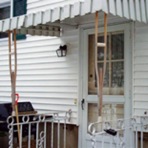Beyond Talking Points wrote:
2) CPAP also helps snoring and will save your marriage life
No, I think you need to go to marital therapy for that!
6) Apnea deprive the body of oxygen
Not necessarily if you include Upper Airway Resistance Syndrome in your definition of "apnea".

The mask is uncomfortable, but it is better than the alternative (slow painful death)
Not all types of masks are uncomfortable, and not for all people.
Never take the word of the doctor, always analyze the sleep study yourself
I would generalize this to: Never put your fate exclusively in the hands of those who care less about it than you do.
There are different levels of sleep apnea. It is a progressive condition.
It varies from night to night, so you might fall in the "mild" category one night, have "no apnea" another night, and be in a different category another night. In short, it is an artificially categorized continuous variable, which has marked variability on a night-to-night basis.
Early diagnostic is a blessing, but there is no much guidance of what to do with it.
Sure there is: Do what you're doing by learning as much as possible about your condition and investigate all your options for treatment, including each treatment's costs and benefits.
o The body gets used to apnea, and adapts. The CPAP treatment return the body to the normal state and it may be harder to nap without the machine as the body is no longer adapted to low levels of oxygen.
Well... I've seen people with severe apnea nap (even inadvertently). I don't think most people would say that you would be unable to nap without CPAP if you so chose.
o One theory is that by using the CPAP I will prevent secondary damage and if I stop after # of years I will be better off than if I did not use them.
OK, this is not a "theory" - it's what I inferred from the contents of that MP3 interview -- it
may be possible.
o There is research that Sleep Apnea May Extend Lives of Elderly. (Notice the word may). See additional research.
File under "That which doesn't kill me makes me stronger".
o Dental appliances could be an alternative (emotional subject for some)
Surgery may be an option.
• Simple sleep study is not comprehensive enough. For persons with time to make a decision we also need to know before making commitment:
o titration study
o evaluation for Positional Sleep Apnea
I'm not sure that this is a separate evaluation. On a diagnostic PSG, it should break your AHI into an overall average per hour, AHI on your back, and AHI in REM.
o Type of Apnea obstructive, central or complex
Don't forget RERAs!
What is your BMI
I'm not sure of what relevance this is, unless you intend to compute your ideal pressure on CPAP (which you are not, you'd use an APAP before you'd do that, I hope). But if you're going to include this, add "neck circumference" to this.
Obstructed sleep apnea is due to the tongue not nasal blockage.
This is incorrect. There are many possible sites of obstruction, the tongue being one possible contributing factor. Nasal blockage could be a contributing factor as well. I've seen at least one article by Dr. Guilleminault in which he says that nasal surgery can be a cure for UARS, but he cautions that all the sites of obstruction must be identified.
• Skip primary care and set up appointment with sleep specialist. (recommendations for Portland, OR accepted)
I thought you already had a sleep study, no? Then the first step is get a copy of your report. BTW, while you're doing that, you might as well ask for your study on CD (the graphs), in case you ever need it in the future.
Ask for a comprehensive home sleep study
I have not read much to convince me that in home sleep studies are the way to go. In the lab is best unless you have some very specific reasons why you need to be at home like agoraphobia or something (you're never at home anyway, so you don't!).
Contact researchers and encourage individually (demand as a group) long term studies.
Given the high rate of noncompliance with CPAP, there would be so much attrition of the subjects that after 5 years, or 10 years, no one would be left in the study. If the researchers were smart, they would sample from this forum!
Very impressive summary. You've assimilated a lot of information. I can see why you would be good at your job, Jason Bourne.
Never put your fate entirely in the hands of someone who cares less about it than you do. --Sleeping Ugly















